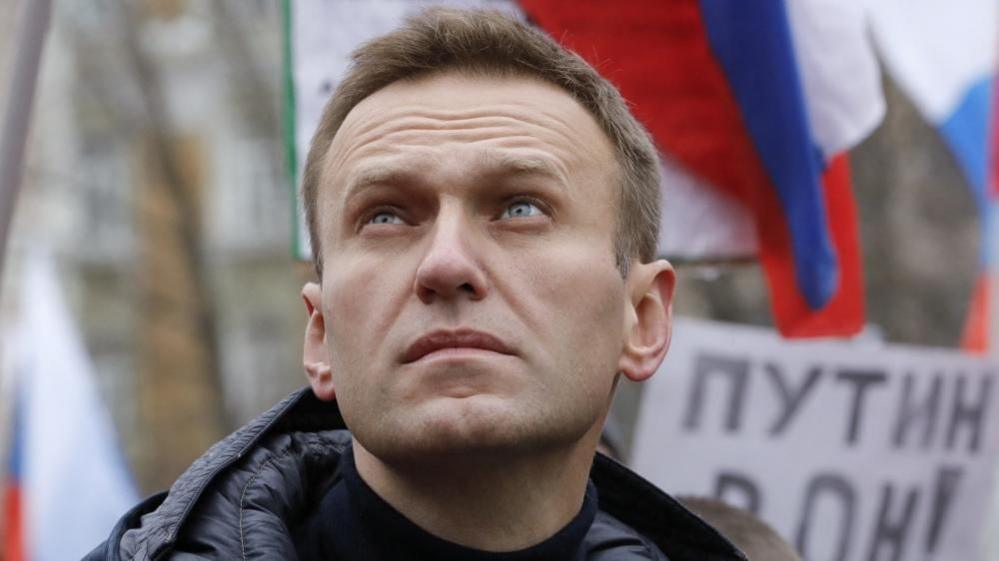Navalny believed he would die in prison, memoir reveals

- Published
Russia's most prominent opposition leader for a decade, Alexei Navalny, believed he would die in prison, according to his memoir.
A fierce critic of President Vladimir Putin, he died in an Arctic Circle jail in February while serving 19 years on extremism charges that were widely seen as politically motivated.
The New Yorker and the Times have published excepts from the book, a posthumous record of Navalny's last years, including those he spent imprisoned.
"I will spend the rest of my life in prison and die here," he wrote on 22 March 2022.
"There will not be anybody to say goodbye to... All anniversaries will be celebrated without me. I'll never see my grandchildren."
Navalny's death earlier this year was met with shock and anger from around the world, with tributes paid to his force as a political campaigner.
Many blamed Mr Putin. In the immediate aftermath, however, the Kremlin simply said it was aware he had died.
In August 2020, Navalny was poisoned at the end of a trip to Siberia with a Novichok nerve agent.
He began writing his memoir, Patriot, while undergoing specialist treatment in Germany.
Recovered, he returned to Moscow in January 2021, and was immediately taken into custody.
Navalny spent the remaining 37 months of his life in jail, during which time he kept up the diary entries collected in his memoir.
On 17 January 2022, he wrote: "The only thing we should fear is that we will surrender our homeland to be plundered by a gang of liars, thieves, and hypocrites."
The excerpts trace Navalny's declining health, and capture the isolation of his imprisonment, with a touch of his characteristic humour.
Describing a typical day on 1 July 2022, he wrote: "At work, you sit for seven hours at the sewing machine on a stool below knee height."
"After work, you continue to sit for a few hours on a wooden bench under a portrait of Putin. This is called 'disciplinary activity'."
Patriot will be released on 22 October. Its US publisher Knopf is also planning a Russian version.
In its presentation of the excepts, the New Yorker says that while in captivity, Navalny managed to have his team post some of the diary entries on social media.
David Remnick, the editor of the magazine, wrote that it was "impossible to read Navalny's prison diary without being outraged by the tragedy of his suffering, and by his death".
In the final excerpt published in The New Yorker, dated 17 January 2024, Navalny says that fellow inmates and prison guards would often ask him why he had chosen to return to Russia.
The answer, Navalny writes, is simple: "I don't want to give up my country or betray it. If your convictions mean something, you must be prepared to stand up for them and make sacrifices if necessary".
Related topics
- Published16 February 2024

- Published16 February 2024
